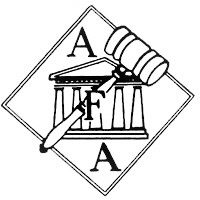Argumentation and Advocacy seeks to publish the best in studies of argumentation in all its forms and from diverse theoretical and methodological perspectives. It seeks to address a broad intellectual audience interested in argumentation studies but not necessarily conversant with a specialized vocabulary.
The journal follows a policy of blind peer review. Manuscripts for regular issues ordinarily will be read by two or three reviewers selected from among the Editorial Board and invited referees; manuscripts for special issues will be read by a guest Editor and invited referees.
To ensure blind review, a detachable title page should contain the author’s name, current academic title and affiliation, mailing address, telephone number, fax number, and e-mail address, and post-secondary institutions attended and degrees earned; any material that would identify the author should be stripped from the text. Include a history of the manuscript: whether it is derived from a graduate thesis (if so, identify the advisor), any previous public presentation or publication of any portion, or other relevant information.
Manuscripts should be double-spaced throughout, including long quotations, notes and references. On a separate page, include an abstract of no more than 100 words with a list of five suggested key words. Notes, lists of works cited, tables and figures should appear on separate pages following the text. The title of the essay (without the author/s name) should repeat on the first page of the manuscript. Text should be left-justified only.
Papers using statistical methodologies should include reliability estimates for all measures, effect sizes for significant results, and power estimates for nonsignificant outcomes. Authors should be sensitive to the problem of experiment-wise error rates. Correlation matrices should accompany multivariate procedures such as canonical analysis.
Manuscripts should be prepared using Microsoft Word format (doc) or be submitted in Rich Text Format (rtf), and conform to the Publication Manual of the American Psychological Association, 5th ed., 2001. An exception is that classical sources should be cited in text without dates (e.g., Aristotle, Rheoric, I.1.1354a). Please note that surname prefixes such as der or von are ignored in alphabetizing the reference list (e.g., van Eemeren is alphabetized by “E” not “v”). Content notes may be used, but should be kept to a minimum. Upon acceptance of the manuscript for publication, authors should be prepared to furnish photocopies of all quotations for verification purposes, and to provide a final version of the essay in both hard and digital form, including camera-ready copy for artwork and figures.
Manuscripts submitted to Argumentation and Advocacy obligate the author to grant exclusive right of review to this journal until such time as s/he receives the results of our review. Essays that have been published previously in their entirety in other sources should not be submitted; essays that have been published previously in part (e.g., in the Alta proceedings) should be substantially revised before submission and the original version should also be sent to the editor. Upon acceptance, copyright should be assigned to the American Forensic Association.
Submit three hard and one digital copy of the manuscript to: Dale Hample, Argumentation and Advocacy, Department of Communication, University of Maryland, 2130 Skinner Building, College Park, MD 20742-7635. The digital copy may be e-mailed as an attachment to arg-adv@umd.edu, with the title in the subject line. Manuscripts will not be processed for review until both hard and digital copies have been received.
